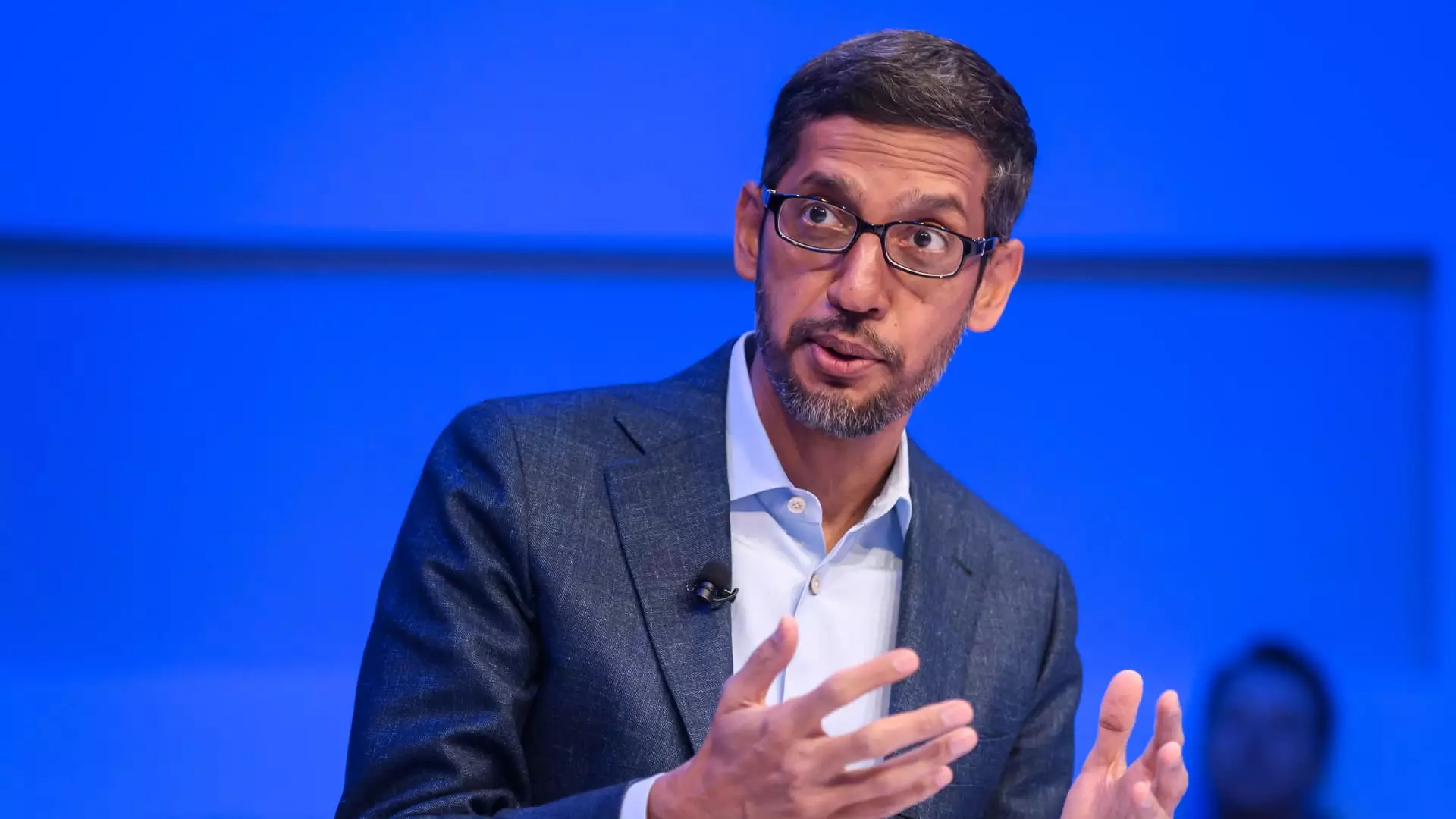In a recent strategy meeting held at Google’s Mountain View headquarters, CEO Sundar Pichai set an urgent tone for the coming year, emphasizing that “the stakes are high” for Google as it navigates a landscape filled with intense competition and regulatory challenges. The discussions, which came as employees donned gaudy holiday sweaters, were pivotal, signaling a dire need for acceleration and adaptation within the company as advancements in artificial intelligence (AI) shape the tech arena.
Pichai explicitly stated the necessity for Google to embrace the urgency of the moment, highlighting the importance of harnessing AI technology to address substantial user challenges. “I think 2025 will be critical,” he noted, underlining the imperative for Google to sharpen its focus on innovation and effectively leverage AI tools to not only maintain its position but also to create tangible improvements for users.
The concerns raised by Pichai are set against a backdrop of fluctuating market dynamics that pose risks to Google’s long-established dominance. The tech giant, known for its extensive search engine capabilities, is grappling with heightened competition from emerging players who have astutely seized upon the opportunities presented by generative AI technology. OpenAI’s ChatGPT, for instance, has transformed the AI narrative since its introduction, attracting substantial investments and leading the charge toward new search paradigms.
Regulatory scrutiny looms heavily as well, with legal battles intensifying around Google’s operational practices. A recent federal ruling indicated that Google maintains an illegal monopoly in the search market, while the Justice Department is pushing for significant structural changes to Google’s business model. Such factors create a volatile atmosphere, and Pichai is acutely aware of the pressures stemming from public and governmental reviews of the company’s extensive power.
Despite the multitude of challenges facing Google, there are signs of resilience and forward-thinking strategies aimed at reclaiming a leadership status in AI. The introduction of the Gemini application stands at the forefront of Pichai’s strategy, as its features aim to redefine user interaction with technology. The company’s ambition to propel the Gemini app to half a billion users exemplifies a bold approach to creating engaging and useful tools that could uplift Google’s standing in the rapidly evolving tech landscape.
During the meeting, Pichai highlighted the importance of being best-in-class rather than merely first in the market. This philosophy is particularly pertinent as the company has shifted its focus toward meaningful execution rather than being enshrined as the initial innovator. Google’s historical narrative has been marked by ingenuity and scrappiness, and Pichai invoked this spirit while rallying employees to adapt to a changing world without losing sight of Google’s foundational values.
Throughout the discussion, Pichai encouraged open communication by addressing questions from employees via the company’s internal platform, which demonstrated a commitment to transparency and dialogue. One poignant inquiry reflected the perception that ChatGPT has become a key reference point for AI, posing the question of Google’s strategy to ensure its relevance in the consumer AI space. This highlights an internal acknowledgment of the growing market complexity and employee desire for a decisive action plan.
Demis Hassabis, co-founder of DeepMind, also weighed in, conveying the ambition to “turbo charge” the capabilities of the Gemini app. This reveals a concerted effort by Google to innovate its offerings while maintaining a user-centric approach. Hassabis’ vision of a universal assistant demonstrates a forward-looking strategy that promises seamless integration across various domains and devices, ensuring that the company evolves with consumer needs.
The meeting further showcased innovations from Google, as Josh Woodward from Google Labs led demonstrations of cutting-edge products aimed at transforming user engagement. From AI-powered coding assistants to advanced notetaking tools and multitasking extensions, the breadth of Google’s ambitious product pipeline illustrates a renewed fervor for innovation. The enthusiastic reception from employees indicates a vibrant internal culture eager to embrace upcoming developments despite current uncertainties.
As Google navigates these pressing challenges, the directive to “stay scrappy” resonates deeply within its workforce. The company has adapted to a landscape of heightened scrutiny and competition with an austere approach, evident in recent workforce reductions. However, such “constraints lead to creativity,” Pichai affirmed, expressing optimism that limitations can catalyze ingenious solutions rather than hinder progress.
As Google sets its sights on the year 2025, the path ahead will clearly require astute navigation through a challenging landscape filled with competitive, regulatory, and technological hurdles. Pichai’s rallying call highlights the urgency of innovation and user-focused solutions, underscoring a collective commitment to tackling pressing problems head-on. The stakes have never been higher, but with a strategic blend of historical resilience and innovative ambition, Google is poised to navigate the turbulent waters of the tech industry. The coming year could define not only the company’s future but also its role in shaping how technology interacts with society at large.


Leave a Reply